Edited by Jayde Gavlik
Gaeltacht Quarter street signage plan a huge step forward whilst saving Belfast City Council over £185,000
En Bloc blanket approach will reduce the huge street signage backlog whilst recognising the unique linguistic importance of the Gaeltacht Quarter.
Conradh na Gaeilge and Fís an Phobail, the West Belfast Irish language Plan, have welcomed the Belfast City Council Policy supporting the erection of bilingual street signs en bloc across the 309 streets in the Gaeltacht Quarter currently without bilingual signage. The proposal was brought forward in February 2023 to address the huge backlog in application for a bilingual street sign within Belfast City Council. A report was brought before the Council’s Strategic Policy and Resources Friday 20th October detailing the proposal. The report and proposals were agreed by the Committee today (Friday 20th October 2023) and will proceed to the next Full Council meeting for ratification.
The proposal will see the 309 streets in the lower Gaeltacht Quarter brought through the street signage process in a batch, with all streets being progressed together. All houses will receive a letter and where streets would prefer to opt for a full survey they can do so by notifying the council. The report will save Belfast City Council significant time and resources whilst addressing the backlog in applications. It is estimated that this blanket approach will save Belfast City Council over £185,000 (approx. 55%) when costed against a street by street basis for the 309 remaining streets.
Currently there are an estimated 500 applications for dual language street signage (English/Irish) queued in the Council system awaiting progress. The Council currently progresses around 6 applications per month.
CIARÁN MAC GIOLLA BHÉIN, COORDINATOR OF FÍS AN PHOBAIL, THE WEST BELFAST IRISH LANGUAGE PLEAN, COMMENTED:
“According to the latest census figures, West Belfast has one of the highest concentrations of Irish speakers anywhere in Ireland. This is evidenced by the amazing growth of our Irish-medium education system and the vibrant community sector that has developed, particularly over the last 20 years. Visibility of the language has, however, been severely limited to that which the community themselves had erected. We warmly welcomed the adoption of a much more progressive signage policy by Belfast City Council recently and commend them again for the proposal to fast track en bloc bilingual signage across the Gaeltacht Quarter. This will compliment the dynamic, community-led revival in the area, reinforce positive attitudes in relation to the language and demonstrate that this area has a vibrant bilingual community. It will also help clear the backlog in signage requests and allow council to meet demand across the city for bilingual street signage. We want to thank councillors and officials in City Council for implementing this transformational initiative.”
Ciarán Mac Giolla Bhéin
CUISLE NIC LIAM, LANGUAGE RIGHTS COORDINATOR WITH CONRADH NA GAEILGE, SAID:
“Bilingual signage is an internationally recognised measure to ensure increased visibility of the Irish language. That increased visibility leads to increased normalisation of the language and in turn increased tolerance to bilingualism in general. Considering over 90% of our placenames come directly from Irish, this is a linguistic restorative policy that will see Irish returning to areas and streets where it was previously banned. This en bloc policy was brought forward to address the dire waiting times and backlog, with residents potentially waiting up to 10-12 years in the queue of 500 streets awaiting bilingual signage. We estimate this will save the council around £185,000 rather than doing this on a street by street basis, whilst clearing the backlog of applications and speeding up the overall process at the same time. We look forward to exploring how best to replicate this proposal in other areas with significant concentrations of Irish language speakers both in Belfast and in other council areas in the coming months.”
Cuisle Nic Liam
Belfast City Council Estimate the cost per street is on average £1,089. See their plan in detail here.
Total Cost to do this street by street = 309 streets x £1,089 = £336,501
Total Cost to do this en bloc as per today’s proposal = £149,652
Savings to BCC to do en bloc: Council saves £186,849 – a saving of 55.5%
ABOUT FÍS AN PHOBAIL – THE WEST BELFAST IRISH LANGUAGE PLAN:
For the first time ever, areas outside of the Gaeltacht regions have been awarded official status as areas of specific linguistic importance. In 2018, Foras na Gaeilge awarded specific status to ‘Irish Language Network Areas’ and West Belfast was one of only 5 areas chosen across Ireland.
Funding was made available to develop a language plan for the area in 2018 and since then that plan has been approved by Foras na Gaeilge and given official status by the Irish Government. In September 2022, a language planning co-ordinater was appointed to oversee implementation of that plan over the next 7 years.
The overall aim of the West Belfast Language Network (Fís an Phobail) to support the development of a critical mass of speakers to foster and strengthen a sustainable language community in the years. The official recognition for this network provides national status for our work and the additional resources that accompany the project provides the space with which to implement an ambitious plan which recognises and assesses existing provision and develops an action plan to strengthen and expand on them in the years ahead.
CONTACT:
Ciarán Mac Giolla Bhéin, Coordinator, Fís an Phobail, West Belfast Language Plan
+44 7545 293841 | [email protected]
Cuisle Nic Liam, Language Rights Coordinator with Conradh na Gaeilge
+44 7851 024581 | [email protected]
Pádraig Ó Tiarnaigh, Communications Manager, Conradh na Gaeilge
+447716690237 | [email protected]
SOCIAL MEDIA:
X: @cnag / Instagram @cnagaeilge
X: @fisanphobail / Instagram @fisanphobail
EDITOR’S NOTE:
Conradh na Gaeilge is the democratic forum for the Irish-speaking community. The Conradh has over 200 branches and numerous individual members registered around the world, members that work hard to promote the use of Irish in their own areas. Conradh na Gaeilge’s main aim is to promote the use of Irish as the standard language in Ireland. Conradh na Gaeilge was established by Douglas Hyde, Eoin Mac Néill, and their colleagues on the 31st of July 1893. The organisation runs Irish-language courses; advocates for the language rights of Irish-speakers; raises awareness about the language; hosts the international Irish-language festival Seachtain na Gaeilge; manages the Irish-language information hub PEIG.ie and the Irish-language bookshop An Siopa Leabhar; supports Raidió Rí-Rá; and much more. More information: www.cnag.ie




